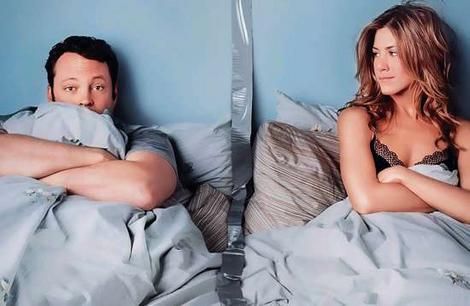 Whether your fiction is plot- or character-driven, what’s really sitting behind the wheel of this bus is the conflict. Without conflict, your story will flop around like a quivering lump of protoplasm, kind of like Jabba the Hutt without the charm. Conflict drives story. It drives your characters to get off their asses and do something about the things that have been bothering them.
Whether your fiction is plot- or character-driven, what’s really sitting behind the wheel of this bus is the conflict. Without conflict, your story will flop around like a quivering lump of protoplasm, kind of like Jabba the Hutt without the charm. Conflict drives story. It drives your characters to get off their asses and do something about the things that have been bothering them.
To keep the conflict in the forefront of my squirmy writer brain, I keep asking myself, “What does this character want?” Okay, right now one of my protagonists wants chocolate and a shoulder rub. Lovely aims, but hardly enough to make a reader stick around for three hundred pages. The conflict is too easily resolved. She can go to the store to buy chocolate, or pay a massage therapist to tend to her aching muscles. BUT… what if she is driven to the point of obsession to create the most sinfully delicious chocolate on the planet because her mother died in a freak chocolate fountain accident before she could realize her dream of being the next Willy Wonka? What if she is so hideously deformed that all of humankind recoils from her, except for the nice guy down the street…who is marrying a total bee-yotch next Saturday, and our gal is contemplating nefarious behavior involving rat poison and a bear trap?
Now there’s some conflict.
This thing your character so desperately wants can be large as freeing the slaves of Egypt or as small as getting a pretty waitress to agree to a date. This goal could look insignificant to some people, but it should be difficult for the character to obtain. Because coupled with a desperate want is the potential consequences of NOT getting it. What is the character willing to put on the line? Pride? Dignity? A fortune? His life? Her marriage?
So, for example, you have a guy willing to ditch everything he knows and loves for a chance at a better life. Yet that’s still not enough, folks. You have to make me care about this guy. If you’re going to stick young Ishmael on a doomed whaling ship helmed by a vendetta-obsessed captain, give me a reason to root for his survival. If he’s two-dimensional or a total douchewaffle, I’ll root for that sucker to sink.
So here are some ways you can raise the stakes and heighten the conflict in your stories.
• Make me empathize with your character. There are many excellent ways to do this. One involves good, solid character development, and I highly recommend you check out JD Mader’s recent IU articles here and here on the subject. Give them flaws. Make them human. Even the bad guys. Make us like them, or at least care what happens to them.
• Try not to give your protagonist an easy way out…unless that’s the way he or she rolls. If a character chooses a solution that on the surface seems quick and painless, let there be consequences for taking the shortcut. Show us the fine print on that deal he penned with the devil. For instance, a dude’s marriage is failing. Instead of working on it, he goes out looking for distraction. Glenn Close comes on to him at a party and takes him home for a night of stupefying abandon. But…SHE’S EVIL! SHE BOILS BUNNIES! See? Consequences. Now he has to kill her. Which is lots harder because she. Simply. Will. Not. Die.
• Keep throwing your characters curve balls. Aha! Your protagonist detective, a former ninja who lost his hand and his wife in an unfortunate throwing star accident, just found some possibly incriminating DNA on a samurai sword. Mystery solved? No! It’s inadmissible in court! And he trips on his way down the stairs after a horrible argument with his pregnant teenage daughter who wants to move to Alaska with the father of her unborn child, a forty-year-old pizza delivery dude. Now, hobbled by a twisted ankle, family problems, and lack of evidence, he has to work even harder to catch the bad guys. See, we care more about him now, and we want to stick around to see how he’ll break the case.
• Bounce characters off each other. This creates all sorts of sparks. Not only does your protagonist want something desperately, but this jerk is standing in her way. What’s she going to do about it?
• Use your words. Yes, grasshopper, you can ratchet up conflict by the very words you choose. Or don’t choose, as the case may be. Short sentences at the right time are magical. When the moon is full. Or something howls in the distance. The door creaks open. A hand shoots out. With long, yellow claws. The tips shine with blood. Fresh blood. See? Looking over your shoulder, are you? Ha. That’s exactly what we want. At the height of a confrontation, we don’t want extra words cluttering up the view.
How do you make conflict work in your writing? Or do you need some?
* * * * *
Laurie Boris is a Contributing Author for Indies Unlimited and author of the five-star novel, THE JOKE’S ON ME. Her second novel, DRAWING BREATH, has just been released. For more information, please see the IU Bio page and her website: http://laurieboris.com.
[subscribe2]


I have this fear that my conflict is never big enough. The world isn't ending in my story, so obviously I'm doing something wrong. It's taken a lot for me to tone everything down to a more personal conflict between characters. The world is not going to end. The world is not going to end. This is the mantra I have to repeat to keep my imagination in check.
Nope, the world doesn't have to end. You're right, RJ…it can be the tiny, personal victories that shake a character the most.
AWESOME post!!! The examples had me literally LOLing! I have multiple kinds of conflict: big major conflict with bad dudes trying to destroy the galaxy, conflict between the various alien species that have to come together to save the galaxy from bad dudes, and internal conflict as characters grow and mature, changing their life goals, or wrestle with dark magic that will burn us all to a cinder…
Excellent, Shay! It's EVERYWHERE!
"Damn you, Wonka!"
(fist shake)
😉
Bwah, hah, hah…
Sometimes the kids need a little conflict, too. My twelve year old, Willie Macgregor has to deal with a shape-shifting evil entity who has snatched his best friend Johanna. Willie can rescue Johanna only if he is willing to make a deal with the devil who demands that Willie sacrifice his faith or his friend.
That is a story I want to read!
Me, too!
You want to step outside? Is that what you're saying? That's the way I read it! Let's do this!
You got it, Mader! No hats, no mothers…
When in doubt, add conflict. The trick is in knowing that conflict can be small–a spilled coffee carafe–it's not necessary to set off a bomb.
But a bomb can work, too 🙂
Thanks for the post.
Thanks. Yes. Little sparks can cause conflagrations.
Love this. And, yes, it's often the small conflicts that allow a character to develop. And for me, the characters are the most important element of the story.